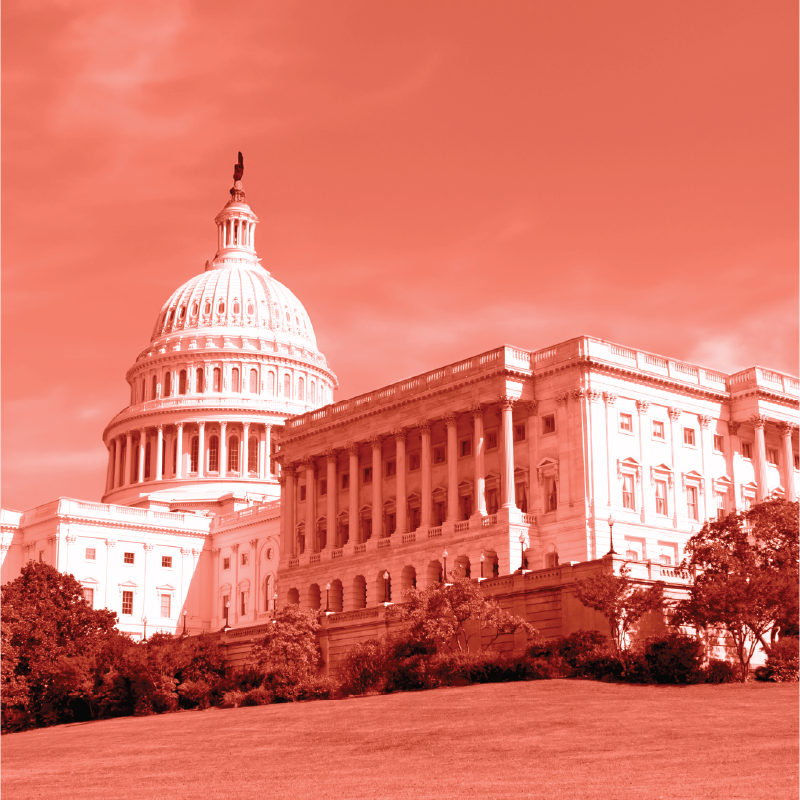As Congress prepares a massive budget package, they’re poised to unleash unprecedented harm for college students and borrowers.
Legislators are exploring a mind-boggling array of measures that would fuel the student loan crisis, slash financial aid, squeeze state budgets, and empower nefarious college programs to defraud students without restriction. If these provisions become law, they’ll set the stage for decades of economic damage for students and families.
Lawmakers have a choice: Wreak havoc on higher education and our economy, or support student success, fund higher education, and set our nation up for economic benefits for years to come.
Let’s begin with the student loan catastrophe in the making: Lawmakers are proposing to eliminate key debt relief plans, stripping away lifelines for millions of borrowers. The proposed changes include implementing a new repayment plan that would increase monthly payments for millions of borrowers and extend the repayment window to 30 years. These changes could unlock a full-blown default crisis and further erode the financial security of working families.
The attack on higher education doesn’t stop there. Additional cuts could endanger the sustainability of and access to Pell Grants — the cornerstone of federal aid that has long helped students access college. With rising costs, these grants already cover less than 30% of the full cost of attendance. Further cuts, including restricting Pell Grants for less-than-half-time students and increasing the number of hours students need to be considered full-time, would only deepen students’ financial strain. The result? Fewer students seeking post-secondary opportunities, heavier debt burdens, and a talent pipeline that runs dry when our economy needs it most.
Even more troubling are the efforts to remove critical protections for students defrauded by institutions or impacted by sudden college closures — a concern heightened by recent actions to gut agencies like the Consumer Financial Protection Bureau. Under existing policies, defrauded students have options to seek loan forgiveness and relief, acknowledging that they should not be held financially responsible for the closures or deception of their schools.
Without strong regulatory enforcement and federal protections, students from low-income backgrounds, veterans, and communities of color would be left holding the bag, with tens of thousands of dollars in debt, without a degree, a job, or a path forward – a resurgence of the predation that occurred over a decade ago and led to these protections being put in place.
Meanwhile, significant cuts to Medicaid and SNAP are on the horizon. This would be disastrous for many, including students who rely on these programs for basic needs while pursuing their education. On top of that, cuts would also place immense pressure on already-strained state budgets. The fallout could leave states with the impossible choice between key support programs and higher education funding. In the past, the result has been sharp tuition increases and debt needed to get to graduation. These choices won’t just shape future policy; they will impact generations to come.
The consequences of these proposals are not hypothetical. They would mean fewer students pursuing post-secondary pathways, fewer workers trained for jobs of the future, and a stalled American economy. Global consulting firm McKinsey predicts that “86% of new jobs projected to be created through 2030 — in fields such as nursing, teaching, and cybersecurity — will likely require post-secondary education.”
There has been a long-time bipartisan consensus that our nation’s colleges should produce the workforce we need, supporting every industry from manufacturing to healthcare to education. We cannot afford to cut our workforce at the knees at a moment when industries are desperate for skilled talent.
Instead of destroying a higher education system that has been proven to accelerate our economy, Congress should double down on proven tools that expand opportunity: protect and strengthen the Pell Grant program, offer affordable student loan options, and maintain essential safety-net programs. Lawmakers must resist the urge to fund tax cuts for the wealthy by cutting federal programs that American families depend on.
Our country is at a crossroads. Congress has a chance to ensure education beyond high school is accessible, affordable, and a reliable investment for students and taxpayers. Will their legacy be remembered as one that pulled up the ladder or one that renewed the promise of the American Dream?
The path forward is clear, and the Senate must act now to keep college affordable.
Sameer Gadkaree is president and CEO of The Institute for College Access & Success.




